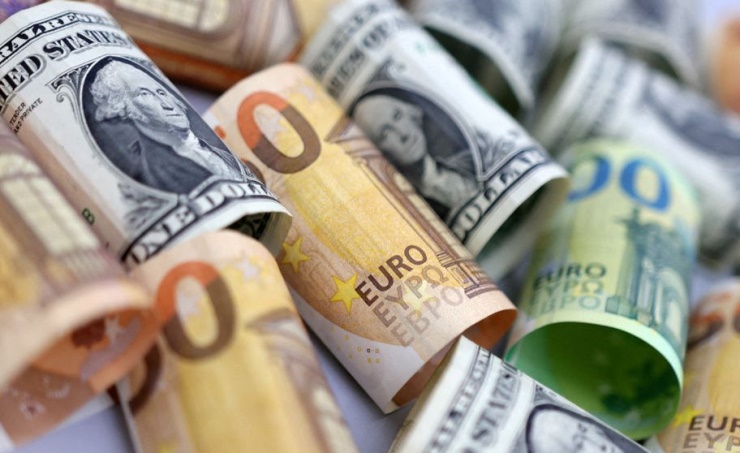
The increasing worry that an energy shock will keep inflation high and make a recession in Europe all but certain caused the euro to hit a new two-decade low on Tuesday.
China’s yuan weakened to a two-year low, while sterling briefly touched its weakest since March 2020.
The euro was pushed away from the 20-year low reached early in the session, at $0.99005, by business activity figures from Europe that were not as dismal as anticipated, according to Reuters.
But by 0820 GMT, the currency was still down 0.15% at $0.9930 and holding below the key $1-level.
“What we’re trying to figure out is how much of the move in the euro is driven by thin summer liquidity and how much is driven by flows,” said Kenneth Broux, a currency strategist at Société General in London.
“But of course the increase in gas prices yesterday is bad news all around.”
Energy supply has already been strained by the continent’s heat waves, and concerns are rising that any disruption during the winter months may be disastrous for business activity.
“Given the current mood, there’s obviously concerns as to whether that’s going to be three days or whether it’s going to be three years,” said Ray Attrill, head of FX strategy at National Australia Bank (NAB).
The pound was dragged to a new 2-1/2-year low of $1.1718, while the Japanese yen edged up to 137.24 per dollar after touching a one-month low of 137.705 earlier in the day.
The risk-sensitive Aussie fell to a one-month low before recovering to around $0.6888.
Elsewhere in Asia, China’s yuan fell to an almost two-year low of 6.8666 per dollar.
Against a basket of currencies, in which the euro is the most heavily weighted, the U.S. dollar index pulled back from session highs and was last trading at around 108.93.
Another reason investors have sought shelter in dollars is the growing risk of a hawkish message from the Federal Reserve’s Jackson Hole symposium, flagged by several officials last week.
“I think he (Fed chief Jerome Powell) will be hawkish on Friday, it’s too soon to declare an inflation victory,” said Broux at Société General.












